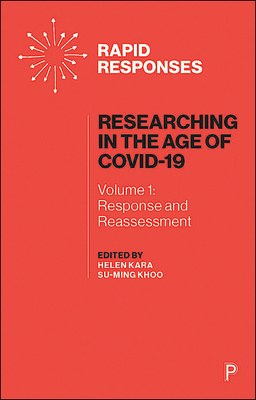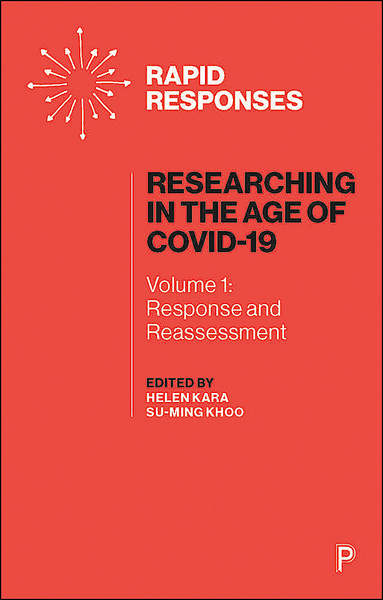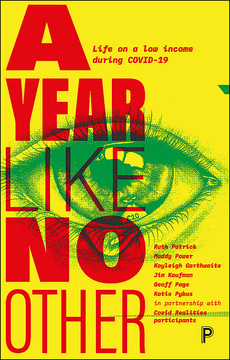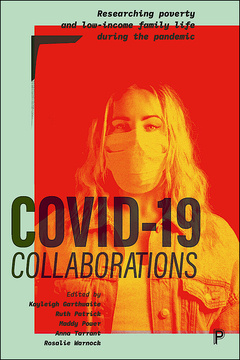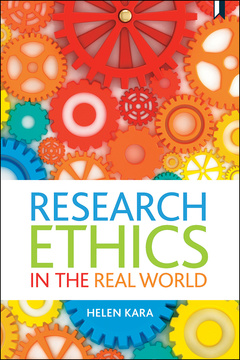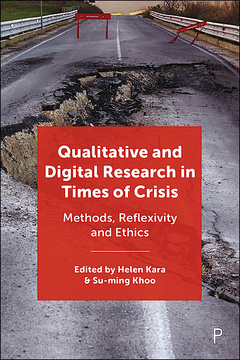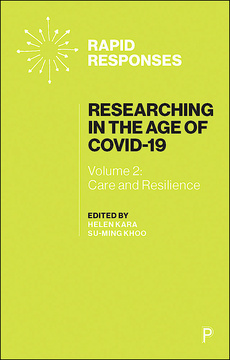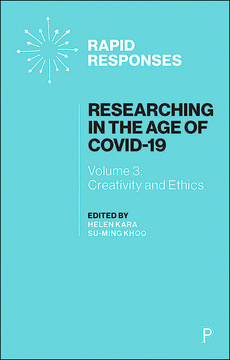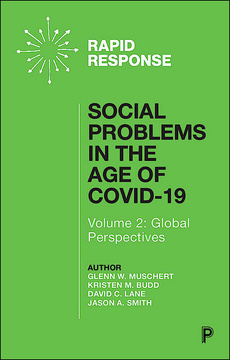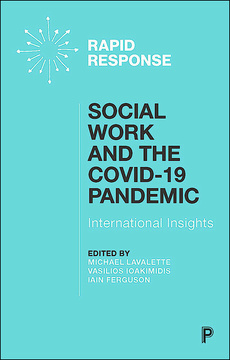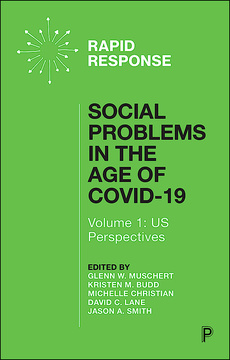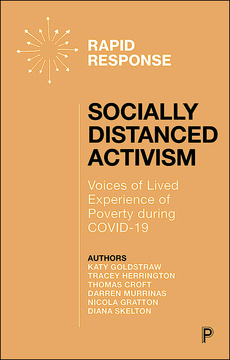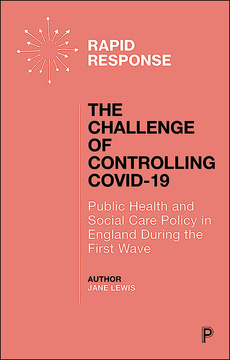Researching in the Age of COVID-19
Volume I: Response and Reassessment
Edited by Helen Kara and Su-ming Khoo
Published
Oct 23, 2020Page count
142 pagesISBN
978-1447360384Dimensions
216 x 138 mmImprint
Policy PressPublished
Oct 23, 2020Page count
142 pagesISBN
978-1447360384Dimensions
216 x 138 mmImprint
Policy PressSee also:
Researching in the Age of COVID-19 Volume II: Care and Resilience
Researching in the Age of COVID-19 Volume III: Creativity and Ethics
In the media
'Researchers Respond to Covid-19: Interview with the Editors' in MethodSpace
'Collaborative editing for convivial and inclusive global scholarship' in The Research Whisperer
'How the pandemic has transformed research methods and ethics: 3 lessons from 33 rapid responses' in LSE Impact blog
As the COVID-19 pandemic hit researchers’ plans, discussion swiftly turned to adapting research methods for a locked-down world. The ‘big three’ methods – questionnaires, interviews and focus groups – can only be used in a few of the same ways as before the pandemic.
Researchers around the world have responded in diverse, thoughtful and creative ways – from adapting their data collection methods, to fostering researcher resilience and rethinking researcher-researched relationships.
This book, part of a series of three Rapid Responses, showcases new methods and emerging approaches. Focusing on Response and Reassessment, it has three parts: the first looks at the turn to digital methods; the second reviews methods in hand and the final part reassesses different needs and capabilities.
The other two books focus on Care and Resilience, and Creativity and Ethics. Together they help academic, applied and practitioner-researchers worldwide adapt to the new challenges COVID-19 brings.
Helen Kara has been an independent researcher since 1999 and specialises in creative research methods and ethics.
Su-Ming Khoo is Lecturer in Political Science and Sociology, and leads the Environment, Development and Sustainability and Socio-Economic Impact Research Clusters at the National Univesity of Ireland Galway.
Introduction ~ Su-ming Khoo and Helen Kara
Part 1: Going Digital
Chapter 1., Evaluating Strategies to Improve the Effectiveness and Efficiency of CATI-based Data Collection during a Global Pandemic ~ Mridulya Narasimhan, Jagannath R and Fabrizio Valenti
Chapter 2., Going virtual: Finding new ways to engage higher education students in a participatory project about science ~ Helena Vicente, Ana Delicado, Jussara Rowland, João Estevens, André Weiß, Roberto Falanga, Annette Leßmöllmann, and Mónica Truninger
Chapter 3., Disorientation and New Directions: Developing the Reader Response Toolkit ~ Louise Couceiro
Chapter 4., Digital Divide in the Use of Skype for Qualitative Data Collection: Implications for Academic Research ~ Almighty Nchafack and Deborah Ikhile
Chapter 5., Qualitative Data Collection under the ‘New Normal’ in Zimbabwe ~ Emmanuel Ndhlovu
Part 2: Going with Methods that are in Hand
Chapter 6., Social Surveys During the COVID-19 Pandemic ~ Roxanne Connelly and Vernon Gayle
Chapter 7., Structured Literature Review of Psychological and Social Research Projects on the COVID-19 Pandemic in Peru ~ Sascha Reinstein and Eli Malvaceda
Chapter 8., Switching over instead of Switching Off: A Digital Field Research Conducted by Small-scale Farmers in Southern Africa and Indonesia ~ Judith Henze, Nicole Paganini and Silke Stöber
Part 3: Needs and Capabilities
Chapter 9., Research Methods to Understand the ‘Youth Capabilities & Conversions’: The Pros & Cons of Using Secondary Data Analysis in a Pandemic Situation ~ Paramjeet Chawla
Chapter 10., Conducting the Emergency Response Evaluation in a COVID19 Era: Reflections on Complexity and Positionality ~ Arun Verma and Nikolaos Bizas
Chapter 11., Challenges of a Systematization of Experiences Study: Learning from a Displaced Victim Assistance Program, during COVID-19 Emergency in Ethnic Territories in Colombia ~ Natalia Reinoso Chávez, Santiago Castro-Reyes and Luisa Fernanda Echeverry
Conclusion ~ Helen Kara and Su-ming Khoo







